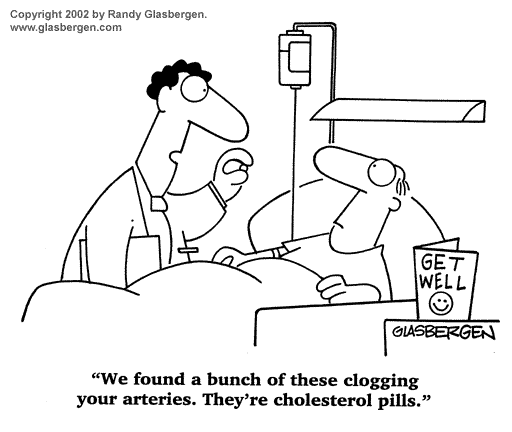Rethinking Dietary Cholesterol (Review)
Guest Article by Martin MacDonald
 This blog couldn't be simpler. I've said it time and time again. No-one needs to limit their cholesterol intake, not even those who are susceptible to increases in LDL from high cholesterol intakes. What makes this post even more timely is that just 2 days ago I spoke with my younger sister (who has out of the blue started massively embracing a higher fat, high vegetable, moderate protein, low carbohydrate diet.. much lower than I ever tend to recommend… and is benefiting hugely from it) and she told me she still gets people telling her eating too many eggs is bad… Well, here is the most up to date review paper on the subject.
This blog couldn't be simpler. I've said it time and time again. No-one needs to limit their cholesterol intake, not even those who are susceptible to increases in LDL from high cholesterol intakes. What makes this post even more timely is that just 2 days ago I spoke with my younger sister (who has out of the blue started massively embracing a higher fat, high vegetable, moderate protein, low carbohydrate diet.. much lower than I ever tend to recommend… and is benefiting hugely from it) and she told me she still gets people telling her eating too many eggs is bad… Well, here is the most up to date review paper on the subject.
Rethinking dietary cholesterol.
Fernandez (2012). Curr Opin Clin Nutr Metab Care. 15 (2):117-21.
 PURPOSE OF REVIEW: The perceived notion that dietary cholesterol is associated with increased risk for coronary heart disease (CHD) has led to dietary recommendations of no more than 300 mg/day for healthy populations in the USA. This study will review the recent evidence that challenges the current dietary restrictions regarding cholesterol while it presents some beneficial effects of eggs (an icon for dietary cholesterol) in healthy individuals.
PURPOSE OF REVIEW: The perceived notion that dietary cholesterol is associated with increased risk for coronary heart disease (CHD) has led to dietary recommendations of no more than 300 mg/day for healthy populations in the USA. This study will review the recent evidence that challenges the current dietary restrictions regarding cholesterol while it presents some beneficial effects of eggs (an icon for dietary cholesterol) in healthy individuals.
RECENT FINDINGS: The European countries, Australia, Canada, New Zealand, Korea and India among others do not have an upper limit for cholesterol intake in their dietary guidelines. Further, existing epidemiological data have clearly demonstrated that dietary cholesterol is not correlated with increased risk for CHD. Although numerous clinical studies have shown that dietary cholesterol challenges may increase plasma LDL cholesterol in certain individuals, who are more sensitive to dietary cholesterol (about one-quarter of the population), HDL cholesterol also rises resulting in the maintenance of the LDL/HDL cholesterol ratio, a key marker of CHD risk.
SUMMARY: The lines of evidence coming from current epidemiological studies and from clinical interventions utilizing different types of cholesterol challenges, support the notion that the recommendations limiting dietary cholesterol should be reconsidered.
